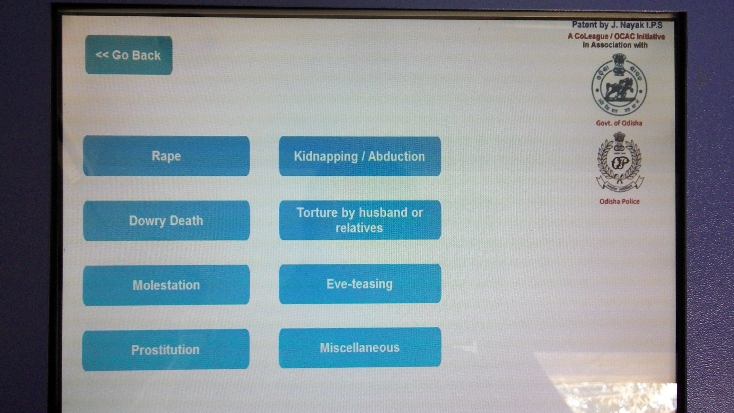Welcome to the Street Harassment Weekly, your update on all the street harassment news you missed from the past week. Here’s what’s been going on:
 The ATM At Which Women Can Report Sexual Assault – “In the Indian state of Odisha, the state government estimates that around 60 per cent of sexual assaults against women go unreported. The ICLIK, developed by the Odisha government and OCAC, a local computer company, allows women to log a report of assault or harassment while appearing to visit a bank machine.”
The ATM At Which Women Can Report Sexual Assault – “In the Indian state of Odisha, the state government estimates that around 60 per cent of sexual assaults against women go unreported. The ICLIK, developed by the Odisha government and OCAC, a local computer company, allows women to log a report of assault or harassment while appearing to visit a bank machine.”
Indian “Sex Offender” Forced to Bend Over To Be Smacked By Women– “Is this India’s new, creative way of disciplining sex offenders? A man, 23, accused of sexually harassing several young women in central India was reportedly forced to bend over in the middle of a public street to have his buttocks smacked by a group of angry schoolgirls.”
Commentary: Why Do We Ask For Gender-Segregated Transport For Women If The Problem Is Men Behaving Badly? – “Women need to be able to occupy public spaces and use public transport in the same way that men do. We need to go to work and school and walk the streets without fear – and a women-only train car doesn’t do anything but offer a temporary solution filled with too many gaps. If we want to stop harassment on subways and buses, we need to start with men and getting them to change their actions.”
Acid Attacks: The Other Half of the Story You Don’t Know– “Acid attacks are seen as one of the most horrendous crimes against women. However, not only women, men are equally prone to the attacks. Chandras Mishra from Meerut is an acid attack victim. He was attacked with the lethal chemical three years back by his landlord’s son, who he had stopped from eve teasing a woman.”
Four Arrested for Eve-Teasing in Hyderabad – “The victim, in her complaint to the police, said that on Friday while she and her sister were returning from a shop the accused started to tease her. When she stopped and questioned them, one of the accused tried to pull her scarf.”
One Tweet Sums Up The Struggle Every NYC Woman Faces On the Sidewalk – “This is called “manslamming,” which Jessica Roy, who interviewed Breslaw about her experience for the Cut, defines as “the sidewalk M.O. of men who remain apparently oblivious to the personal space of those around them” who “will walk directly into you without even acknowledging it” should someone fail to move out of their path.”
It Happened To Me: I Was Catcalled Wearing the Equivalent of a Down Comforter – “Women get catcalled in skirts. They are catcalled in jeans. They get whistled at in trench coats, in yoga pants, in business suits. The problem with catcalling does not lie with women’s clothing. Rather, the problem is with the men who do it.”
The Backlash Against African Women – “Public strippings represent the front lines of a cultural war against women’s advancements in traditionally conservative but rapidly urbanizing societies. They aren’t really about what women are wearing. They are much more about where women are going.”
Street Harassment: Why It’s Not Ok To Comment On Me – “A woman’s body is part of a person; it’s not an object. I am a woman, and my body belongs to me and no one else. Strangers on the street having the right to comment on it? When did that happen? Did I miss the memo?”
CONTEST:
Female Singer-Songwriters wanted to help create anti-street harassment video
UPCOMING EVENT:
Challenging Violence Against Women and Girls on UK Public Transport–
DATE: Tuesday 20th January 2015
TIME: 10.45 to 13.00 (with lunch provided 13.00-14.00)
VENUE: Room G1 & G2, British Transport Police Force Headquarters, 25 Camden Road, London NW1 9LN
